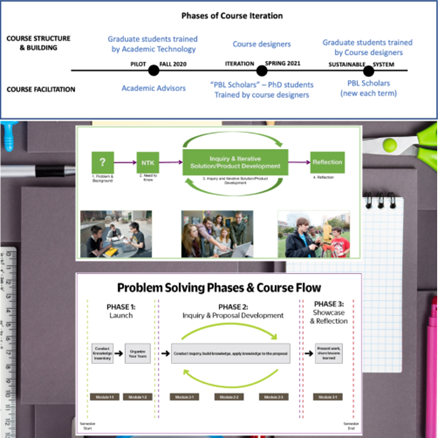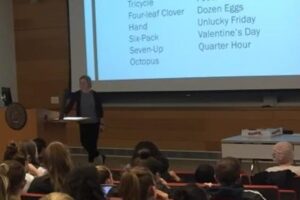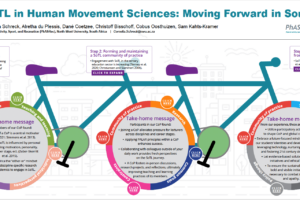
Complex Challenges, Evolving Solutions: Iterative Course Development
By Gail Matthews-DeNatale, Laurie Poklop, Rachel Plews, and Mary English
Complex challenges often require unique solutions that evolve over time. In the spring of 2020, a group of learning scientists from Northeastern University’s Center for Advancing Teaching and Learning Through Research were called together to design a suite of undergraduate courses based on faculty research around global challenges. An added layer of complexity was that these courses would be offered online asynchronously to first-year students around the world.
We each contributed to this project in different ways. The project-based learning (PBL) specialist in our group was instrumental in implementing the overall approach. At the start, she worked with 18 faculty members over the summer months to develop the driving questions for the courses and to prepare the resources and materials that would get students excited and ready to focus on inquiry. The team’s online learning specialists developed the Canvas shell for the courses, which was not straightforward, as these courses didn’t take the shape of a typical online course. The shell needed to align to the phases of PBL—which were ultimately labeled as: (1) launch, (2) inquiry and solution/product development, and (3) showcase and reflection.
The first time the courses were run, professional staff facilitated them. After, a decision was made that PhD students (ideally ones in a discipline related to the projects) would facilitate the courses. With a few weeks before the start of the semester, the team developed and delivered an online training program (with asynchronous resources and activities and weekly meetings) for these PhD students. Another colleague with online learning expertise joined the team at this stage to continue the iterative work on the courses, but also to work with the PhD students, or what we referred to as the Project-Based Teaching Scholars.
Our article is complex with lots of layers balancing instructional needs and priorities with designing courses that would not only be engaging for students, but that would introduce them to faculty research and the Northeastern community. We believe it tells an episodic story of continuous improvement focused on balancing these opportunities and constraints.
Read the TLI article here.




